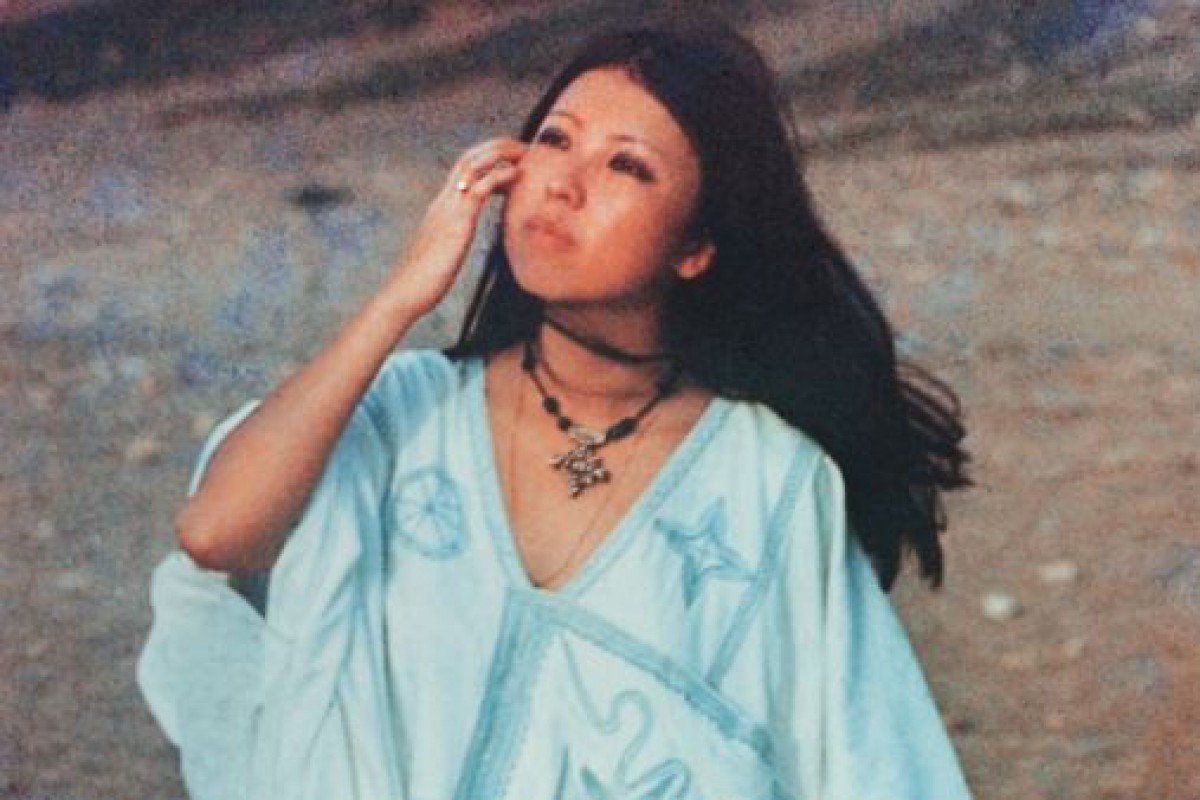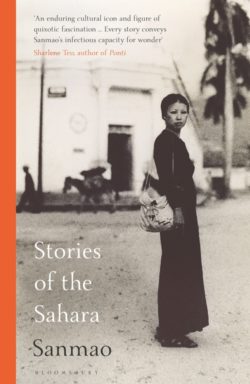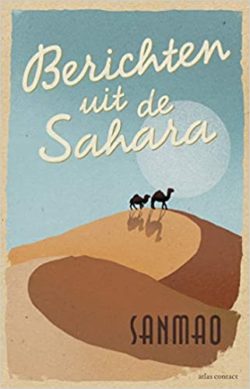Talking Translation: Mike Fu and Annelous Stiggelbout

For the latest blog in our ‘Talking Translation’ series, we are delighted to feature an interview with Mike Fu and Annelous Stiggelbout, two translators of Sanmao’s collection of short stories, 撒哈拉的故事, entitled Stories of the Sahara in English, and Berichten uit de Sahara in Dutch.
We are very grateful to Mike and Annelous for their time, not least as Mike has also been one of the hardworking judges for our 7th Bai Meigui Translation Competition!
How would you describe the stories, in a sentence, to someone who hasn’t read any of her work?
AS: A woman from Taiwan travels to the Sahara with her Spanish husband, in the 1970s, and writes about her adventures in the desert.
the desert.
MF: Spunky Taiwanese woman flies off to Africa, marries a Spaniard, and enjoys a life of colorful encounters and quite a few misadventures during the waning years of Spain's colonial rule over the Western Sahara.
What attracted you personally to Sanmao’s work?
MF: The liveliness of her prose charmed me right off the bat. Though there are certainly some dark themes in Stories of the Sahara, I really enjoyed the understated sense of humor and playfulness Sanmao exudes in many of the chapters, as well as her narrative sensibilities. She's really good at writing endings in particular, I find.
AS: I like that she went to a place where still hardly anyone has ever heard of, in a time where travelling was unusual for a woman from Taiwan. At every step in life, she made her own choices and did things her own way. She lived a very rich and unique life, and as a result her stories are rich and unique as well.
Why do you think her work has such a broad appeal?
MF: Sanmao originally skyrocketed to fame as a self-possessed woman who was unafraid to travel through and live in lands that were essentially unimaginable to the Chinese language reader of the '70s. But I think it was her espousal of universal love and empathy for humankind that really earned her so many diehard fans, and has kept her legacy strong over the course of many generations.
AS: Nowadays, especially in the West, travelling is a lot easier than for someone from Taiwan in the 1970s, but the appeal of it has not changed at all: to go to exotic and unknown places far away, build a life for yourself, make friends with local people and experience things you could never experience back home. It was a dream for Sanmao’s first readers, and it is still a dream for many people now. And Sanmao writes about it in such a breezy tone that she makes it all sound fun, even the hardships.
Were there any specific challenges in translating these stories?
 AS: Every Chinese book is difficult to translate in its own unexpected way. In case of Sanmao, the most notable difficulty was with the names of the people in her book. Sanmao tells stories about people she meets, both Spanish and Sahrawi, and of course transliterates their Spanish or Sahrawi names in Chinese, in her own way. To find the right ‘translation’, I (and the other translators to other languages) had to figure out what the original name had been, and then how to transliterate that into (in my case) Dutch. In case of the Spanish names, this was not too difficult, but for the Sahrawi names it was. We all worked together on this, the Spanish, Catalan and English translators and I, and in the end we found solutions for every name.
AS: Every Chinese book is difficult to translate in its own unexpected way. In case of Sanmao, the most notable difficulty was with the names of the people in her book. Sanmao tells stories about people she meets, both Spanish and Sahrawi, and of course transliterates their Spanish or Sahrawi names in Chinese, in her own way. To find the right ‘translation’, I (and the other translators to other languages) had to figure out what the original name had been, and then how to transliterate that into (in my case) Dutch. In case of the Spanish names, this was not too difficult, but for the Sahrawi names it was. We all worked together on this, the Spanish, Catalan and English translators and I, and in the end we found solutions for every name.
MF: Transliterations were a bit of a challenge; I wrote about how I came to determine these proper names for Paper Republic. Besides that, several chapters in the book included direct allusions to or citations of classical Chinese literature, with some light wordplay here and there. As classical Chinese is definitely not my forte, I'm thankful that many wonderful translators had already done the work conveying the likes of Xin Qiji and Li Bai into English and granted us the right to reprint a few snippets in Stories of the Sahara.
Do you have a sense yet of the reception of Sanmao’s stories in the West?
MF: I'm pleased to say that Sanmao has found quite a few new fans around the world, from Euro-American readers to those based in South and Southeast Asia and beyond. I've also received some lovely messages from readers of Chinese heritage who were able to share in the experience of reading a writer whom their mothers, for example, had so idolized in their youth. Stories of the Sahara was only the beginning of her career, so I hope there'll be a chance to introduce additional works of hers in translation eventually.
AS: In the Netherlands, the book got a few very favourable reviews in various media, and everyone I talked to who had read it loved it. Even a year after the book came out, I still saw it sold in bookstores. So although it’s a rather niche title (a woman from Taiwan, who goes to the Western Sahara, in the 1970s) and sales were modest, the reception has been positive.
Thanks to Mike and Annelous! For more on Sanmao, and read one of her stories, see our bookclub feature here, and you can also listen to a further interview with Mike on the Translated Chinese Fiction Podcast!
